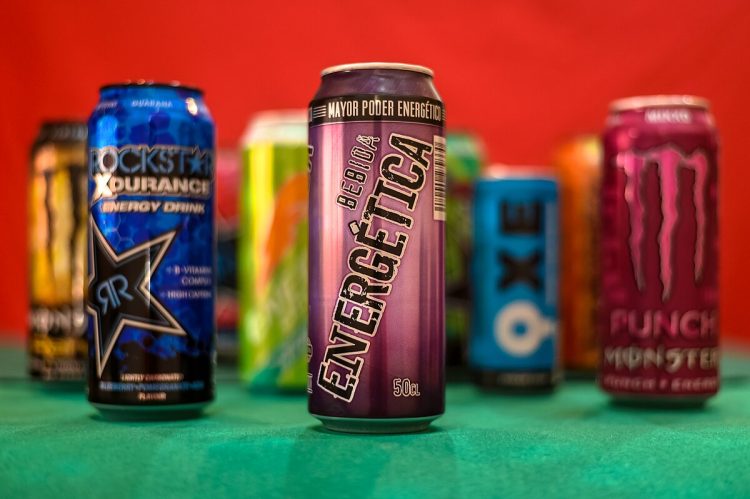In the age of health consciousness, the rise of sugar-free and “functional” beverages has been remarkable. Supermarket shelves and cafes are flooded with drinks boasting zero sugar, added vitamins, probiotics, antioxidants, and claims to boost energy, immunity, or mental clarity. At first glance, these sugar-free functional drinks seem like an ideal choice—offering health benefits without the calorie load of sugary sodas or juices. But is sugar-free truly synonymous with healthy? And what exactly are these functional beverages doing to your body?
This article dives deep into the truth behind sugar-free functional drinks, exploring their ingredients, health impacts, and what you should watch out for when choosing them.
The Sugar-Free Label: A Double-Edged Sword
The absence of sugar in beverages is often celebrated as a health benefit, especially amid growing concerns about obesity, diabetes, and metabolic syndrome linked to excessive sugar intake. Indeed, reducing added sugars is beneficial for controlling blood glucose levels, managing weight, and improving dental health.
However, sugar-free doesn’t automatically equal health. Many sugar-free drinks use artificial sweeteners or sugar alcohols such as aspartame, sucralose, stevia, erythritol, and others to replicate sweetness without calories. While these compounds reduce sugar intake, their health effects are complex and not fully understood.
What Are Functional Beverages?
Functional beverages are drinks enhanced with ingredients intended to provide specific health benefits beyond basic nutrition. Common additives include:
- Vitamins and minerals: Vitamin C, B-complex, magnesium, zinc.
- Herbal extracts: Ginseng, turmeric, green tea.
- Probiotics and prebiotics: For gut health.
- Amino acids: Like taurine or L-theanine.
- Caffeine or other stimulants: For energy and alertness.
- Antioxidants: To combat oxidative stress.
These drinks target various goals such as immune support, improved digestion, mental focus, hydration, or muscle recovery.
The Hidden Effects of Artificial Sweeteners
Many sugar-free functional drinks rely on artificial sweeteners to maintain taste appeal. Despite FDA approval, ongoing research raises questions about their long-term safety and metabolic impact:
- Gut microbiome disruption: Some sweeteners can alter gut bacteria composition, potentially affecting digestion, immunity, and even mood.
- Metabolic effects: Paradoxically, artificial sweeteners may impair glucose metabolism and insulin sensitivity in some individuals, potentially contributing to weight gain or diabetes risk.
- Appetite and cravings: Sweeteners might increase cravings for sugary or high-calorie foods, undermining diet goals.
- Neurological effects: Some studies suggest links between sweeteners and headaches, mood changes, or cognitive effects, although evidence is inconclusive.
The Marketing Illusion: “Functional” Doesn’t Guarantee Efficacy
While functional ingredients sound promising, their presence in beverages doesn’t always translate to meaningful health benefits:
- Low concentrations: Vitamins or herbs might be present in minimal amounts insufficient to produce clinical effects.
- Bioavailability issues: Nutrients may not be absorbed effectively when delivered in a sugary or acidic liquid form.
- Lack of regulation: The functional beverage market is loosely regulated compared to pharmaceuticals or supplements, so claims may be exaggerated or unsupported.
- Individual variability: Effects can vary widely depending on genetics, health status, diet, and lifestyle.

Potential Benefits When Used Wisely
Not all functional beverages are detrimental. Some, when chosen thoughtfully, can complement a balanced diet:
- Electrolyte-enhanced waters: Help with hydration during intense exercise.
- Probiotic drinks: May support gut health if they contain sufficient live cultures.
- Vitamin-fortified waters: Can fill nutrient gaps in certain populations.
- Green tea-based drinks: Provide antioxidants and mild caffeine boosts.
The key is moderation and informed choices rather than blind trust in marketing buzzwords.
What to Look for When Choosing Functional Beverages
- Check ingredient lists carefully: Avoid excessive artificial additives, preservatives, or sweeteners.
- Evaluate sugar content: Even sugar-free drinks may contain other sweeteners or hidden sugars.
- Consider your health goals: Pick beverages aligned with your specific needs rather than general health claims.
- Complement, don’t replace: Functional drinks should supplement whole foods, not substitute them.
- Stay hydrated with plain water: The best beverage for health remains water.
Conclusion
Sugar-free functional beverages are not inherently healthy just because they lack sugar. Their impact on your body depends on what’s inside them—the types of sweeteners, functional ingredients, and overall formulation. While they can offer some benefits, they may also carry hidden risks, especially when consumed excessively or without scrutiny.
Being a savvy consumer means understanding that no single drink can replace balanced nutrition and lifestyle habits. When it comes to functional beverages, reading labels, managing expectations, and prioritizing whole foods will always serve your health better than trendy drinks marketed as quick fixes.
Choose wisely, hydrate mindfully, and remember: healthy habits go beyond sugar-free labels.








































